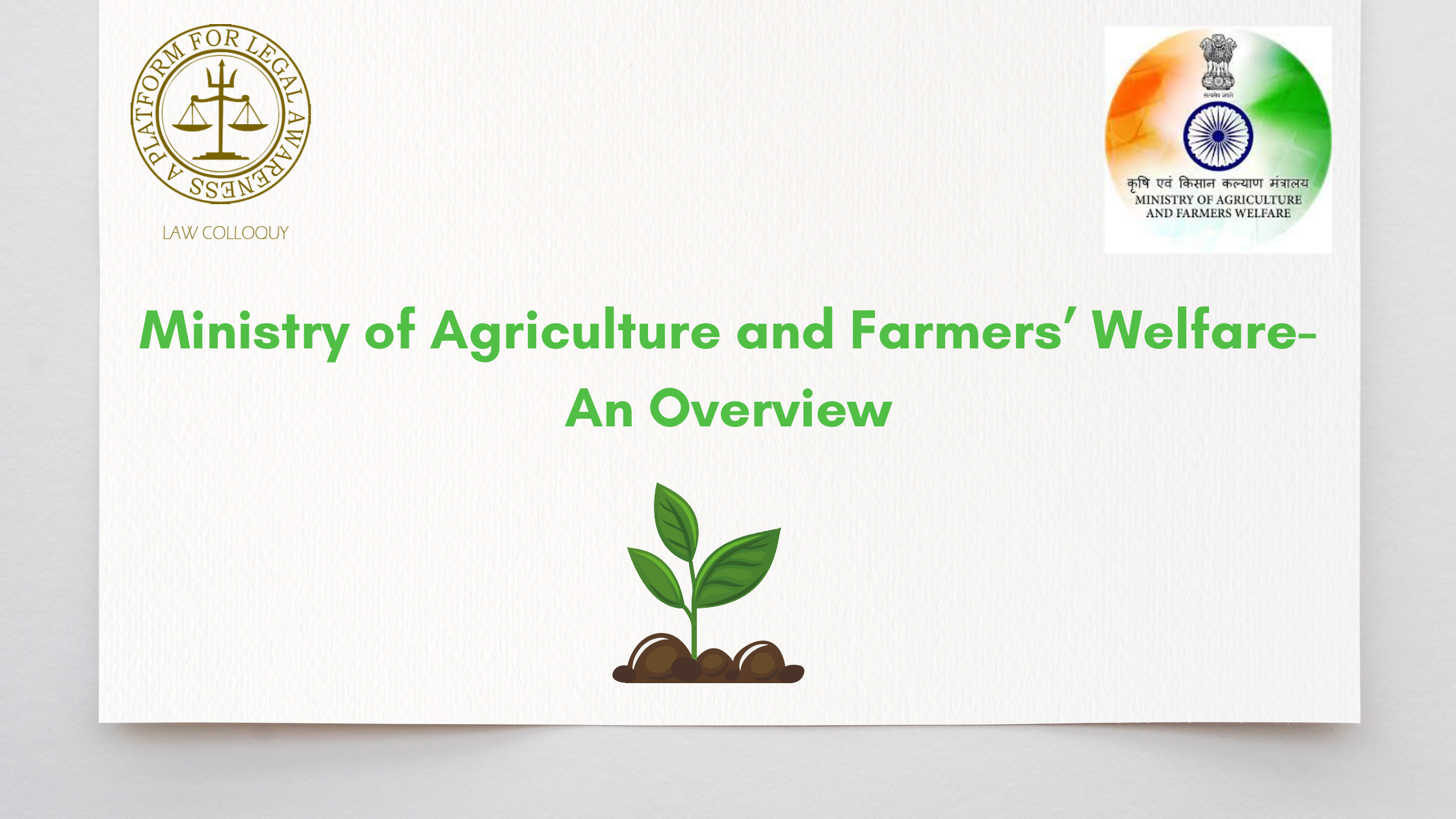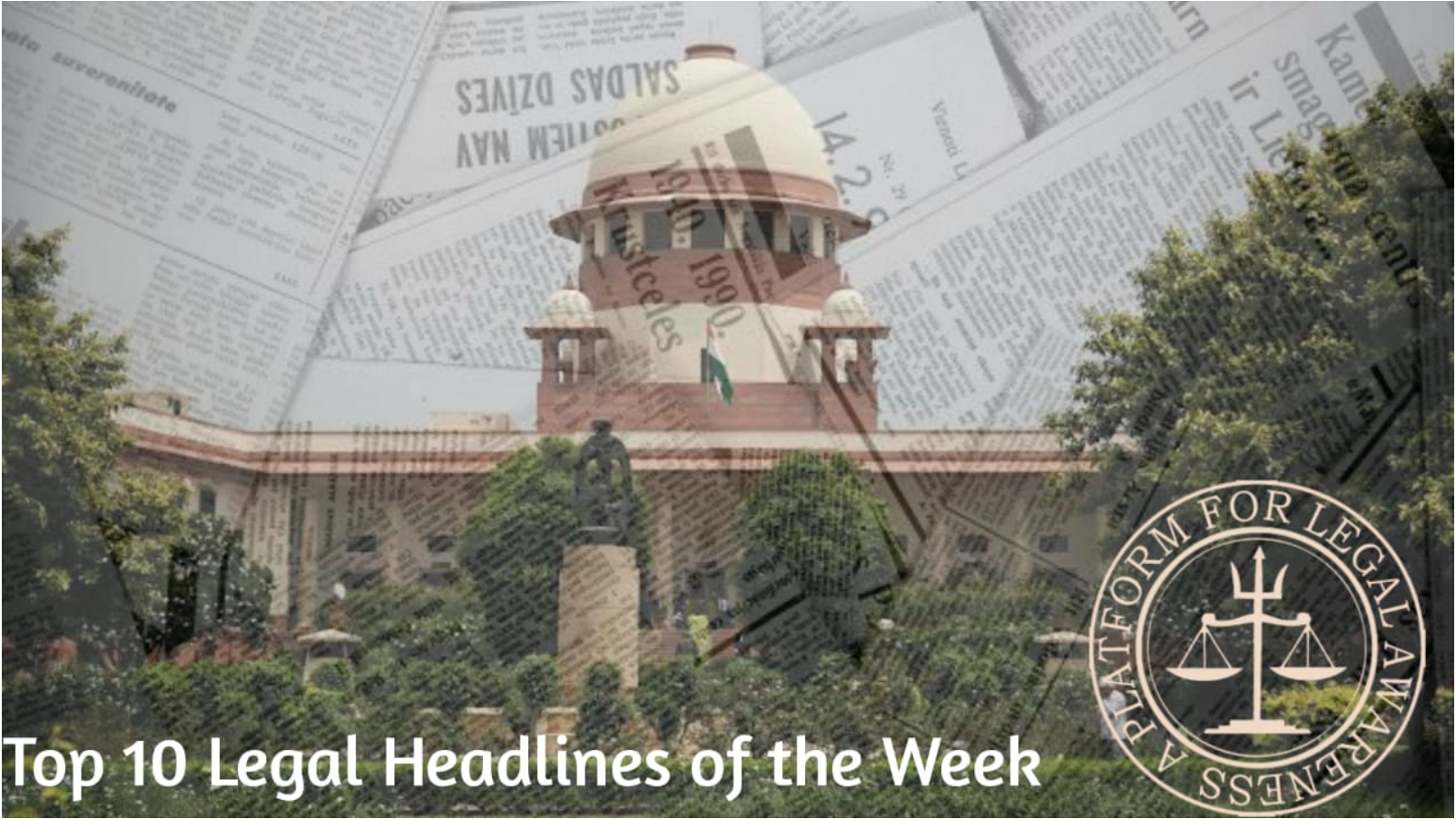Ministry of Agriculture and Farmers’ Welfare- An Overview
The Ministry of Agriculture and Farmers’ Welfare is the main regulating body of India and is accountable for establishing and administering the rules, regulations, and laws of agriculture. This department aims to surpass agriculture, the welfare of the farmer, and satisfy the country’s food needs. It happens with the involvement of three major units serving different functions and holding specific obligations. This blog throws a light on the various department under the Ministry and their roles and responsibilities in brief.
Top Ten Legal Headlines of the Week-11 Nov 2024
Top ten legal news wrap up of the week
Top Ten Legal Headlines of the Week-05 Nov 2024
Top ten legal news wrap up of the week
Top Ten Legal Headlines of the week-29 Oct 2024
Top ten legal news wrap up of the week



